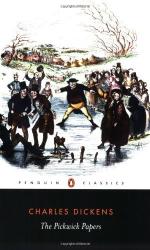|
This section contains 6,961 words (approx. 24 pages at 300 words per page) |

|
SOURCE: “Crèvecoeur's American: Beginning the World Anew,” in William and Mary Quarterly, Vol. 48, No. 2, April, 1991, pp. 159-72.
In the following essay, Grabo suggests that Letters, taken as a whole, not only celebrates America's seemingly endless possibilities, but also expresses the disillusionment accompanying the failure of those possibilities to be realized.
In 1779, Mr. James Hector St. John—a French-born New York farmer of loyalist sympathies, but suspected of being a Revolutionary spy—lay sick, hungry, impoverished, and terrified in the New York City prison. Born in Caen, Normandy, in 1735, the forty-four-year-old St. John found himself thrust by circumstances into one of the many bizarre corners of his remarkable career. Educated at the fine Jesuit Collège du Mont, he had spent a year or so with relatives in Salisbury, England, before emigrating to Canada in 1755. There he served with the French army until wounded at Quebec in 1759. Oddly...
|
This section contains 6,961 words (approx. 24 pages at 300 words per page) |

|


